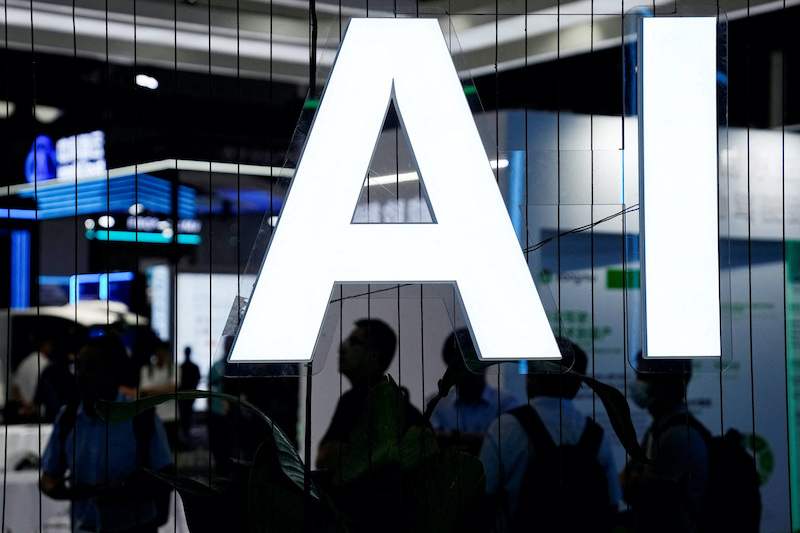Officials from China and the United States are due to meet in Geneva, Switzerland, on Tuesday to discuss risks involving advanced artificial intelligence.
President Joe Biden’s administration has tried to engage China on sensitive issues to generate better understanding and reduce the risk of miscommunication between the two rival nations.
However, US officials stressed that Washington’s policies would not be up for negotiation, despite the talks on how to mitigate risks from the emerging technology.
ALSO SEE: China’s ICBC to Sell $4bn of Total-Loss-Absorbing-Capacity Bonds
US Secretary of State Antony Blinken and China’s Foreign Minister Wang Yi broached the topic of AI in April in Beijing, where they agreed to hold their first formal bilateral talks on the subject.
The State Department has pressed China and Russia to match US declarations that only humans, and never artificial intelligence, would make decisions on deploying nuclear weapons.
“This is the first meeting of its kind. So, we expect to have a discussion of the full range of risks, but wouldn’t prejudge any specifics at this point,” a senior administration official told reporters ahead of the meeting when asked if the US would prioritize the nuclear weapons issue.
Rapid deployment of AI by China
China’s rapid deployment of AI capabilities across civilian, military and national security sectors often undermined the security of the US and its allies, the official said, adding the talks would allow Washington to directly communicate its concerns.
“To be very clear, talks with Beijing are not focused on promoting any form of technical collaboration or cooperating on frontier research in any matter. And our technology protection policies are not up for negotiation,” the official added.
The Biden administration has sought to put guardrails on US-developed proprietary AI models that power popular chatbots like ChatGPT to safeguard the technology from countries such as China and Russia.
Hope for rules all nations will embrace
A second US official briefing reporters said Washington and Beijing were competing to shape the rules on AI, but also hoped to explore whether some rules could be “embraced by all countries.”
“We certainly don’t see eye to eye … on many AI topics and applications, but we believe that communication on critical AI risks can make the world safer,” the second official said.
US National Security Council official Tarun Chhabra and Seth Center, the State Department’s acting special envoy for critical and emerging technology, will lead the talks with officials from China’s Foreign Ministry and state planner, the National Development and Reform Commission.
US Senate majority leader Chuck Schumer plans to issue recommendations in coming weeks to address risks from AI, which he says will then be translated into piecemeal legislation.
He has cited competition with China and its divergent goals for AI, including surveillance and facial recognition applications, as reason for Washington’s need to take a lead in crafting laws around the rapidly advancing technology.
Chinese authorities have been emphasizing the need for the country to develop its own “controllable” AI technology.
- Reuters with additional editing by Jim Pollard
ALSO SEE:
US May Deny China, Russia Access to Advanced AI Models
US Asks China to Declare AI Will Never Control Its Nuclear Arms
Fears Rising on Impacts From Unrestrained AI Projects
AI Poses Extinction Risk, as Bad as Nuclear War, AI CEOs Say
Biden, Xi Will Vow to Ban AI in Nuclear Weapons, Drones – SCMP
China Joins US, EU in Vow to Tackle ‘Catastrophic’ AI Harm Risk
AI Revolution Firing Nuclear Power Push – NBC News
China Sets Interim Rules for Generative AI Accessible to Public
China AI Uses Deception to Kill Satellites in Space Battle – SCMP
























